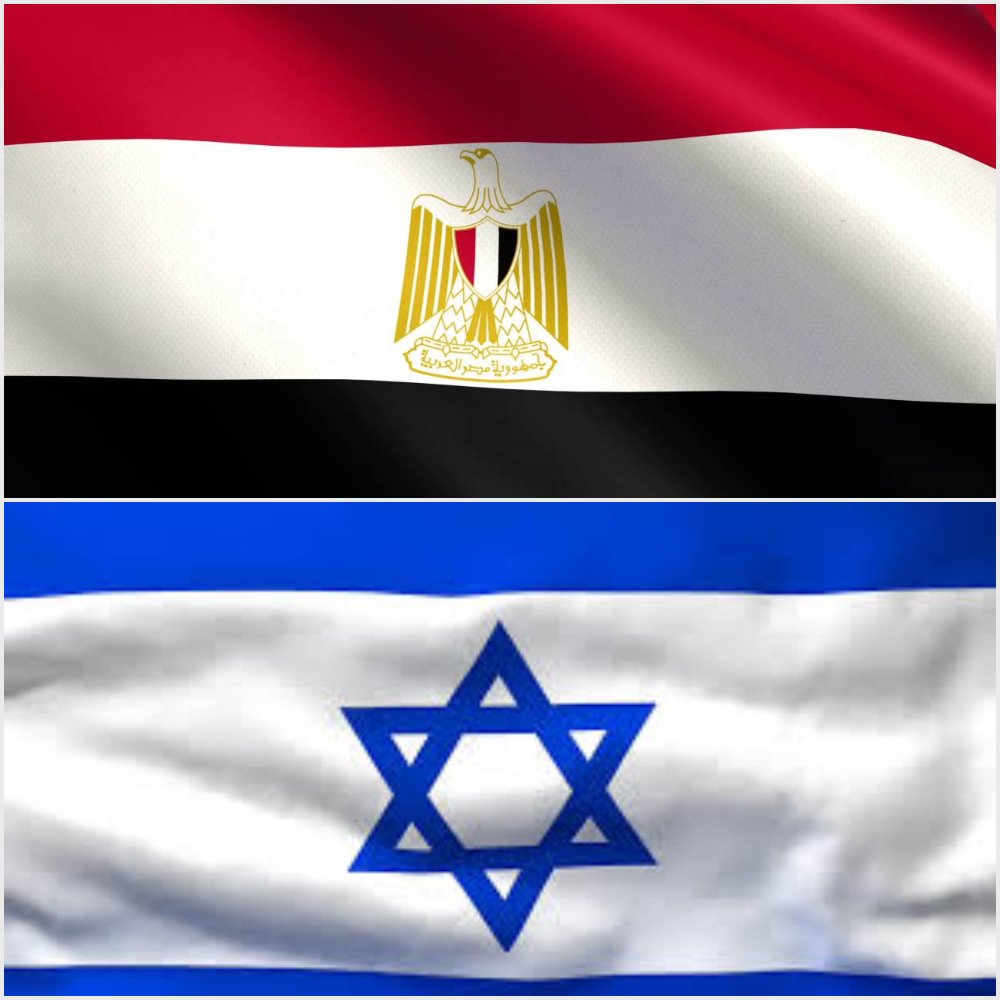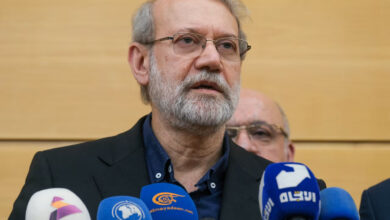
Nowhere has the mystery surrounding one of Anwar Sadat’s closest presidential advisors, Ashraf Marwan, been more closely followed than in the State of Israel. Did the man work for or against the Israelis just before the outbreak of the October War of 1973? Since the creation of the Agranat Commission in November of that same year, interest in the subject has produced enough reports, analyses and official documents to satisfy anyone looking for evidence, not self-serving opinions.
The Book
It has been two years since Uri Bar-Joseph, a professor at Haifa University, published The Angel. I recall picking up a copy thinking it would make a good addition to my spy-book collection. Then, a few pages into the book and Bar-Joseph identified Marwan’s younger son as “Hani.” On the surface, his error (repeated four times in the book) might have been the result of shoddy fact-checking. Given the controversial nature of the subject, however, this kind of oversight should give one pause. If the author could overlook “Ahmed,” the correct name of Ashraf Marwan’s younger son—a well-known, successful Egyptian businessman, to boot—why should he expect the reader to trust him on covert intelligence operations that happened fifty years ago? How did the book even make it to publication, let alone serve as the basis for a film? The number of errors it contains is curious, because it casts not only a shadow of amateurism, but the longer one of deliberate misrepresentation. I do not mean misrepresenting complicated matters that are open to different interpretations, but citing Israeli and Egyptian sources that make absolutely no mention of what he claims they do.
The author plainly betrays his motives for writing the book, and everything that’s gone wrong with it, when he cavalierly declares, “It has been more than four decades since Israel’s official commission of inquiry, the Agranat Commission, published its findings about the Israeli debacle in the Yom Kippur War. In it, the world learned that Israel’s failures in the opening days of the war had nothing to do with Egyptian cleverness…” The actual Agranat Commission of Inquiry Interim Report (April 1974) stated, “The enemy thus succeeded in misleading the IDF and taking them by surprise under the guise of an exercise supposedly taking place in Egypt.”
For some reason, Bar-Joseph conveniently omits direct mention of the report’s findings, which would have made short shrift of his arguments. The report not only unequivocally acknowledges that the Egyptians misled Israel, but also blames Israel’s failure on the one possibility the Israeli generals had strategically refused to consider: that Egypt would never launch a war without air superiority and coordination with Syria. This strategic consideration was known as “The Concept,” or kontzeptzia. It was continually fed to Israelis and duly confirmed by Marwan’s classified documents, which indicate Egypt’s failure to gain air superiority despite long years of Soviet’s assistance.
The Concept was so firmly planted in the mind of the average Israeli that even the information delivered by Marwan, showing improvements in Egyptian air defense systems, could not budge the prevailing opinion regarding Egypt’s ability to launch war on its own. As Bar-Joseph himself confesses, “This mistake would haunt Israeli intelligence analysts who, having developed their kontzeptzia largely on the basis of information Marwan had given them, refused to revise their thinking even when Marwan began painting a very different picture.”
He writes that on October 2, in the days leading up to war, Marwan had travelled to Libya to tell its leader about Egypt’s intention to go to war soon. Only two days later, Marwan travelled to Paris where he contacted his Mossad handler by telephone to relay the code word “chemicals,” which meant that Egypt will attack. “Iodine” was a less urgent alert than “potassium,” which Bar-Joseph mentions as the codeword for imminent attack. Marwan never used potassium in their conversation, preferring to follow up his alert with a request for a meeting with the head of Mossad in London. It seems rather obvious that he was trying to warn of war without provoking a real sense of urgency. That was exactly the effect of his request during the few crucial days preceding Egypt’s military campaign to recover the occupied Sinai Peninsula. With no inkling about the matter’s urgency, Marwan’s handler, Dubi, arranged for a London meeting with Zvi Zamir, the head of Mossad, at midnight Cairo time on October 6.
It took 90 oral and 188 written testimonies for the Agranat Commission to determine that the his intel, delivered on October 5, the eve of the October War, was “ambiguous.” Keen on safeguarding the man’s image as an Israeli spy, Bar-Joseph passes over the “imprecision” on Marwan’s part regarding the timing of Egyptian attack and instead blames Dubi for failing to ask their most important spy “to name a specific chemical element.” To be fair, he mentions a request by Zamir for an exact attack time in the tenth chapter, adding that Zamir “didn’t consider it such a pressing question.” Yet, based on the Agranat Commission Report, these exchanges contained intel that proved critical to the success of Egyptian troops in the first few hours of battle.
“The opening of the war by Egypt and Syria on Yom Kippur, October 6, 1973, at approximately 14.00 hours, took the Israel Defence Forces by surprise in that, until the early morning hours of that day, the IDF’s Supreme Command and the political leadership did not evaluate that total war was about to commence – and on the morning of that day, when it was already clear to them that the war would break out, the Supreme Command mistakenly assumed that it would break out only at 18.00 hours. Responsibility for these mistaken evaluations should be placed primarily on the Director of Military Intelligence and on his Principal Assistant in charge of the Intelligence Branch’s Research Department, which is the only body in the country engaged in intelligence research. They failed by providing the IDF with totally insufficient warning: It was only about 4.30 a.m. on Yom Kippur that the DMI on the strength of fresh intelligence that he had received, notified that the enemy would open war at 18.00 hours on both fronts. This brief warning did not allow for mobilization of the reserves in an orderly fashion, and involved the hasty mobilization of the land forces, contrary to the regular timetables and mobilization procedures. The additional error of four hours, between 18.00 and 14.00, further reduced the interval between the call-up of the reserves and the opening of fire by the enemy.”
Bar-Joseph suggests that Marwan had no knowledge exactly when Egypt’s armed forces would make their move, having learned of an attack purely by coincidence the next day from a friend of his. Mohamed Nosseir is said to have told him in London, where they met on October 5, of Egyptair’s intention to reroute all carriers in Paris and London to Tripoli. Presumably, it was then that the likelihood of war dawned on Marwan. He went into his bedroom, made some phone calls and came out assuring Nosseir that war would be launched the following day.
Going by the first rule of intelligence (i.e., the need-to-know basis), it is only fitting that Marwan had no knowledge of dates. Having his cover blown during his mission would have seriously compromised Egypt’s war plans. It seems strange, though, that he should confirm the day of the war’s launching to his friend. It turns out that in a TV interview—the author’s only source for whatever was communicated between the two men—Nosseir never mentioned Marwan confirming that there would be war the next day. The author misrepresents and plays loose with his own references.
As for the phone calls made in the bedroom, it may well be that Marwan meant to warn Egypt that the rerouting of commercial planes had practically become public knowledge and risked cluing in the enemy. Perhaps he received instructions that very night for his meeting. We shall never know. Bar-Joseph has chosen to include for analysis the chit-chat as well as the information relating to intelligence operations. Still, nowhere in the TV interview did Nosseir ever mention Marwan making phone calls from the bedroom. He held that after he had passed by Marwan’s at noon, Marwan asked him to make sure the plane belonging to Kamal Adham, who headed Saudi intelligence, was available to take him to Cairo “immediately.” The book didn’t mention “immediately”, which if anything, would indicate Marwan’s intention to cancel his 10 p.m. meeting with the head of Mossad.
Marwan met with the Mossad in Paris around October 18, soon after the hostilities started. Eager to paint him as furious, the author claims that “Zamir had to calm down Marwan, who was highly frustrated by the fact that his warning on the eve of the war had not been immediately heeded by the Israelis.” But his description bears a curious resemblance to the case of another Egyptian spy, Ahmed El-Hawan (AKA Goma‘a El-Shawan), who had met with the Mossad once the Sinai campaign was underway. Episode 13 of Tears in Insolent Eyes, a famous TV show aired in 1980, shows El-Shawan extremely frustrated with his Mossad handlers’ inability to make use of all the sensitive information with which he had provided them. El-Shawan’s mission, however, ended after he successfully obtained a sensitive transmission device from the Israelis, and details of the operation was released to public by the Egyptian intelligence
Both he and Marwan had been trained by an icon of Egyptian intelligence in the 1970s named Mohamed Abdel Salam El-Mahgoub. In a recent interview, El-Mahgoub admitted that he was responsible for training Marwan before putting him in the field as part of a prewar plan to penetrate and deceive the Mossad. After the training, El-Mahgoub joined a special crew that handled Marwan. This is the first piece of information that came to light about Ashraf Marwan from the Egyptian side.
The idea that Marwan was planted inside the Mossad has been confirmed by Lt. Col. (Ret) Shimon Mendes, who served in the IDF intelligence directorate during the October War and witnessed firsthand what damage Marwan’s intel had caused Israel. He devotes a whole chapter of Sadat’s Jihad (2018) to him and the operation, which he considers the brainchild of both Nasser and Sadat. There is no question in his mind that Marwan had deceived Israel. Nor could there be according to Ahron Bregman, the Israeli academic/journalist who first blew Ashraf Marwan’s cover in 2002. He insists that “Marwan was a double agent, whose loyalty to Egypt prevailed at the moment of truth in 1973…”
An Alternate Interpretation
Bar-Joseph’s basic argument is as good as the assumptions he slips into his narrative, which clearly fly in the face of the most important testimonials and other evidence he marshals. Removing the least tenable of them would leave a more factually based and parsimonious rendering of the events, perhaps one that runs along these lines:
One, Marwan received orders to issue two false warnings about war with Egypt in the year preceding October 1973, and that this cost Israel dearly both financially and diplomatically. To establish his credibility, he had first to “chicken feed” the enemy—an espionage term—with real but worthless or low-grade information like “tipoffs” on terrorist attacks. He also passed on classified documents designed to consolidate the Concept, including the minutes of a 1971 meeting between Sadat and Brezhnev. (Years later Mohamed Hassanein Heikal, a famous Egyptian journalist, admitted receiving a copy of these minutes from contacts at the Knesset.)
Two, when Sadat settled on a 2 p.m. attack against Israeli forces, Marwan was appropriately kept out of the loop and told to alert the Israelis about a 6 p.m. attack, which could easily have been part of an earlier plan, as Heikal once suggested. In any case, Marwan used the illusion of precision to bolster his credibility and dispel any future suspicion. Four days before the attack, he was ordered to leave Cairo to ensure plausible deniability when the discrepancy with the actual war timeline became apparent. Asked to keep the fictitious zero-hour from his Israelis handlers as long as possible, he then requested a meeting with Zamir, and Dubi, to whom he relayed the codeword “chemicals,” not “potassium,” as instructed by his superiors. The meeting was set up for late October 5, but he showed up ninety minutes late.
Marwan’s Death
There is precious little information about Marwan’s death. One thing is certain, though. If any personal papers he might have written were magically to reappear, they would be unlikely to mention that he was an Israeli spy or implicate him and his family name—his wife, sons and grandchildren all lived and owned businesses in Egypt. As shrouded in mystery as his death has been, Egyptians in fact have nothing to fear from them. Based on the facts and circumstances we already know, a personal papers or journal would probably lead to one of only two conclusions. Either Marwan told a perfectly normal story about his career with Nasser, Sadat and businesses; or, he played Israel to the hilt as a loyal Egyptian spy, among other things. The true identity of his Mossad handler—Dubi or Alex—has not yet been disclosed. But what if Marwan recruited him and made a point of mentioning it in his personal papers? Bar-Joseph notes that he “refused, repeatedly, the Mossad’s efforts to replace Dubi with a different handler or even to add a second one.”
A popular myth had it that the Egyptian intelligence got rid of its enemies by throwing them off London balconies. It facilitated the task of anyone conspiring to pin an assassination on Egypt. But why would the Egyptian government, presumably aware of this myth, incriminate itself by liquidating a threat by throwing him off a balcony? Any suspicion that this was the work of Egyptian agents would have given the appearance that Marwan was indeed a spy for Israel. And none would be more delighted at this public recognition of its “prowess” than Israeli intelligence. The author takes cover behind this popular belief because it serves his argument for Marwan’s loyalty. He contends that “if the Mossad didn’t do it, and Marwan’s business rivals didn’t do it, the only reasonable option is that the Egyptians did it. Only here do we find both the motives that would have led them to kill Ashraf Marwan and also clear common thread between his death and similar deaths of others who stood in the way of the Egyptian regime in the past.”
“To drive home his point, he tries to prove that President Mubarak later avoided Marwan, since being seen together would have brought shame to himself and his family. Bar-Joseph describes Mubarak’s surprise at seeing Marwan at Nasser’s shrine during the annual anniversary of the October War in 2005, and how the President had him escorted out of Egypt immediately. “The next morning,” he writes, “Marwan was on a plane back to London. Following this incident, Mubarak issued an order barring Marwan from returning to Egypt.” Unfortunately, the author’s sole source for this account is a paragraph in Heikal’s book, Mubarak and His Time. Translated word-for-word, first, Heikal’s wording makes no mention of Mubarak barring Marwan from returning to Egypt; and second, the story about the two whispering men has never been validated. But Heikal states with consummate vagueness that, some of them noticed that the two men (Mubarak and Marwan) exchanged whispers that lasted only seconds. Some of those who were near them in the lobby from the “shrine” to Mubarak’s car picked up, or so imagined from whispers, what allowed them to understand that Mubarak blamed Ashraf for deliberately sticking to Mubarak throughout the ceremony; then Mubarak advised him to travel immediately, because people talk a lot.”
Here, “noticed,” “picked up,” “so imagined from whispers,” and “what allowed them to understand” are exact translations of his words and figure in one sentence. One would be hard pressed to find a more deceptive wording to advance an unproven narrative. Bar-Joseph cites it as a historical fact.
If Heikal’s account were true, moreover, why would Mubarak invite Marwan in April 2007 to his son’s wedding ceremony (not to be confused with the wedding party in Sharm Elsheikh) with fewer than four hundred invited guests, mostly Mubarak’s closest friends and officials? If eighteen months were enough for Marwan to earn forgiveness for his massive betrayal, were they enough to spare Mubarak’s family and regime the shame of standing next to Marwan, under any circumstances?
The book promotes the idea that the Angel saved Israel, as the title suggests. Because this idea is more assumed than demonstrated, it tends to unravel the author’s whole argument. Bar-Joseph cannot pretend that, after all, the Angel gave us enough warning before the war. It did not happen. He can’t further claim that the Angel saved hundreds or thousands of Israeli lives; or that the Angel helped keep Egyptians from crossing the canal. Neither of these things did happen.
So about the only way to convince the world that Israel prized Marwan is by way of another wild assumption, that Sadat’s intention was to destroy Israel. Nothing could be further from the truth, except to those who have a weakness for extremist scenarios. It has been amply documented that Sadat did not launch the October War with the aim of occupying Tel Aviv or crushing Israel. On the contrary, he had been seeking to draw Israel into peace negotiations for years as president, but all his efforts had fallen on deaf ears. Kissinger, Nixon and Israel much preferred the status quo that Egypt found so untenable. Even the Soviet Union dreaded change and preferred “no war, no peace” state. With his land occupied, Sadat had to change this state of affairs. He knew full well that the US would never allow the destruction of Israel, so he expelled the Soviets from Egypt months before going to war. From that moment on, there has been only one “broker of peace”: Israel’s closest ally.
In his book Witness on War and Peace, Ahmed Abul Gheit, Egypt’s current Arab League secretary general and a young diplomat in 1973 working under Hafez Ismael, Sadat’s national security advisor at the time, has written about extensive, top-secret prewar discussions on the possibility of de-escalation and ceasefire quickly after the outbreak of war. He himself presented a memo to Ismael suggesting a surprise attack on Israel followed by immediate diplomatic efforts to reach a ceasefire.
Sadat’s motives for waging war and his limited objectives are important, in turn, for measuring Marwan’s success . Ultimately, it took President Mubarak’s statement in 2007 confirming Marwan’s patriotic role to clear his name. Toward the end of the book, nevertheless, Bar-Joseph challenges Egypt to produce records proving that Marwan was working with Egyptian intelligence. This is quite strange, considering that no more than forty of fifteen hundred pages of the main Agranat Commission report have so far been disclosed to the public. And to date, there has been no official statement from the Israeli government or the Mossad confirming Marwan as its former agent. This silence recalls the case of the infamous Egyptian spy, Refaat El-Gammal, who retired and left Israel in 1973. Egypt acknowledged him only after his death in Germany in 1982.
The Movie
The film inspired by the book came as a shock to everyone. For one thing, its dramatization of the events, a familiar fare in similar films, produce scenes that convey the exact opposite of many of the book claims. The film shows Marwan warning the Israelis right before the October War with “Potassium.” Since the word signifies an immediate threat of war, it would imply loyalty toward Israel. Then a flashback has him sitting with Sadat and explaining how Israel must be defeated without destroying it in order to bring it to the negotiating table. Believing that the only way to achieve this is through a surprise attack, he suggests two false warnings and a real attack on Yom Kippur.
But none of this is anywhere mentioned in the book. The film portrays Marwan as playing both sides for the purpose of achieving peace, and at one point he weeps while listening to Sadat’s speech in Jerusalem calling for an end to war. What could possibly have caused the film to diverge so drastically from the book?
Uri Bar-Joseph seems to have made it his life mission to prove that Ashraf Marwan was an Israeli spy. His last paragraph declares outrightly that Marwan was “the best source the Mossad ever had.” Could it be that, on realizing the unlikelihood of his story, he decided that, If we can’t have him then they can’t have him, either?




